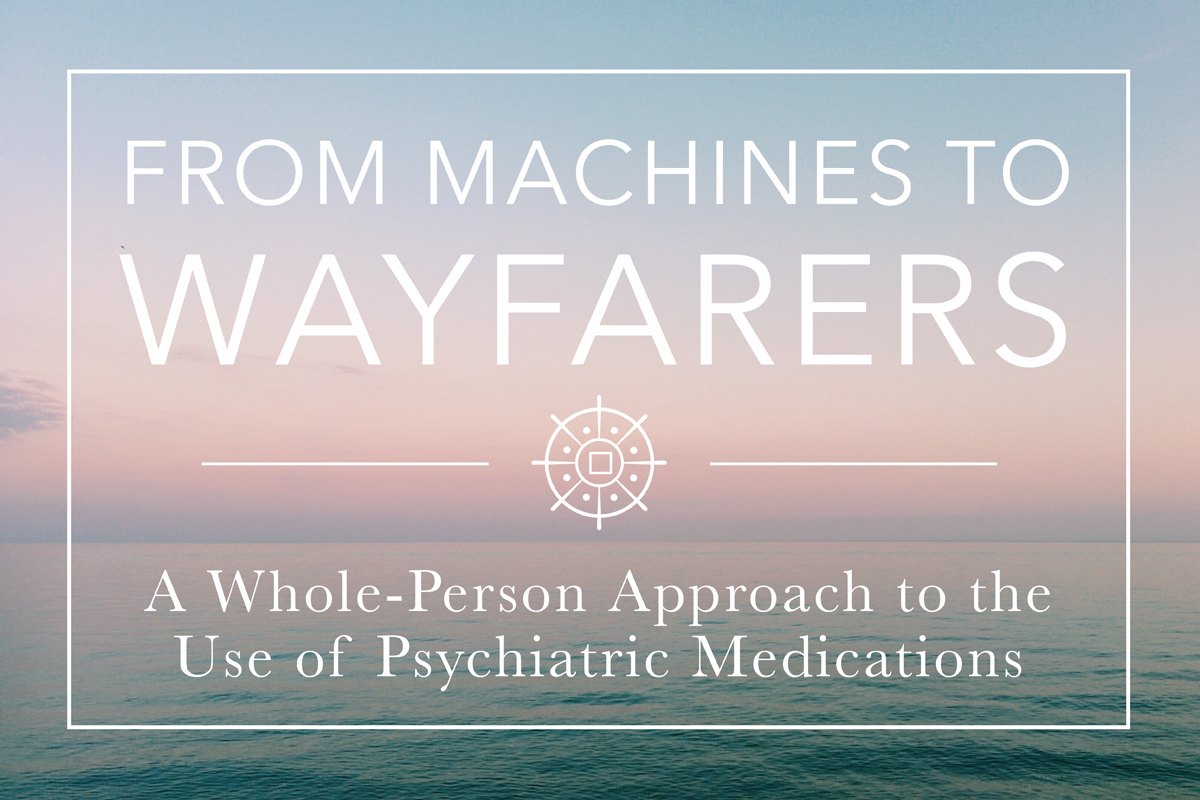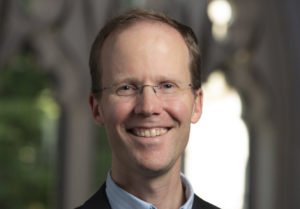
- This event has passed.
From Machines to Wayfarers: A Whole-Person Approach to the Use of Psychiatric Medications

Date
May 2, 2019 at 8:30 PM EDT
Location
The Rhodes-Rawlings Auditorium in Klarman Hall
Speaker
Dr. Warren Kinghorn
Tune in May 2 at 6:30pm EDT for our livestream of this event:
Join us for our Spring Beimfohr-Neuss Lecture, which will explore what a wise, holistic view of psychiatric medication looks like, given by Associate Professor of Psychiatry at Duke University Medical School, Dr. Warren Kinghorn.
More than 1 in 6 American adults use a medication to treat a mental health condition each year, and antidepressants routinely rival blood pressure medications as the most frequently prescribed class of medicines in the United States. But what does it mean to prescribe and to use these medications wisely? Dr. Kinghorn argues that five problematic trends within modern psychiatry—individualism, self-body dualism, self-symptom dualism, technicism and commodification—can lead psychiatrists to treat patients in a way that leads to fragmentation rather than wholeness. These five trends collectively undermine a Christian understanding of what it means to be human: that we are loved and known by God; that we are creatures of earth who become who we are in relationship with others; that we are wayfarers on this earth, pilgrims on a journey that starts with God and ends with God; and that we are called not to control but to praise of God and wonder at God’s glory and at God’s creation. This Christian account of being human calls for a radically different vision of psychiatric care: from individualism to relationship, from self-body dualism to psycho-physical-spiritual unity; and from a focus on symptom reduction to the broader question, “what is needed, right now, for the journey?” Engaging these themes, Dr. Kinghorn argues that it is good to use medications in a way that relieves suffering. But in addition, medications must be prescribed and used in a way that attends to the additional dimensions of relationship, agency, and story.
 Warren Kinghorn, MD, ThD is Associate Professor of Psychiatry at Duke University Medical School, Esther Colliflower Associate Professor of the Practice of Pastoral and Moral Theology at Duke Divinity School, co-director of the Theology, Medicine, and Culture Initiative at Duke Divinity School, and a staff psychiatrist at the Durham VA Medical Center in Durham, NC. His work engages Christian approaches to mental health and mental illness, moral and theological dimensions of combat trauma, and the way that faith communities walk alongside people with mental health problems.
Warren Kinghorn, MD, ThD is Associate Professor of Psychiatry at Duke University Medical School, Esther Colliflower Associate Professor of the Practice of Pastoral and Moral Theology at Duke Divinity School, co-director of the Theology, Medicine, and Culture Initiative at Duke Divinity School, and a staff psychiatrist at the Durham VA Medical Center in Durham, NC. His work engages Christian approaches to mental health and mental illness, moral and theological dimensions of combat trauma, and the way that faith communities walk alongside people with mental health problems.
If you need accommodations to participate in this event, please contact 607-319-4038 as soon as possible.
